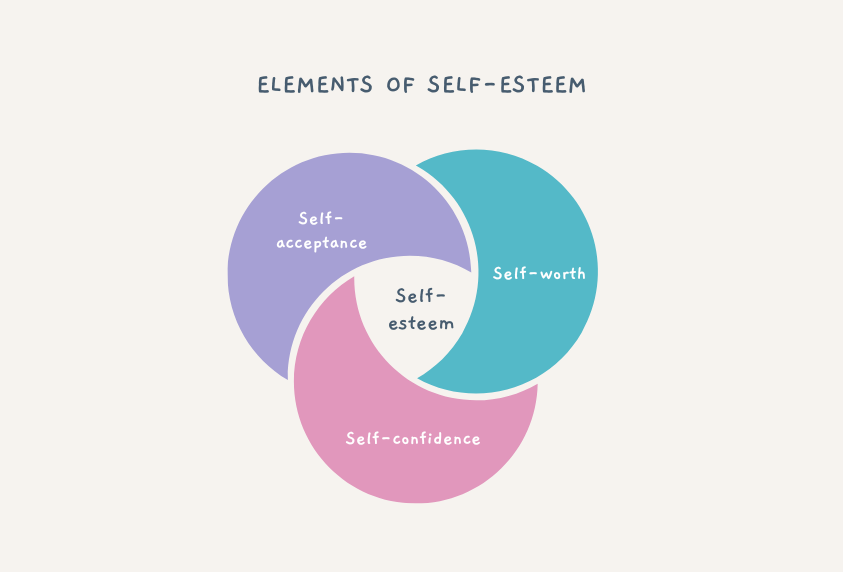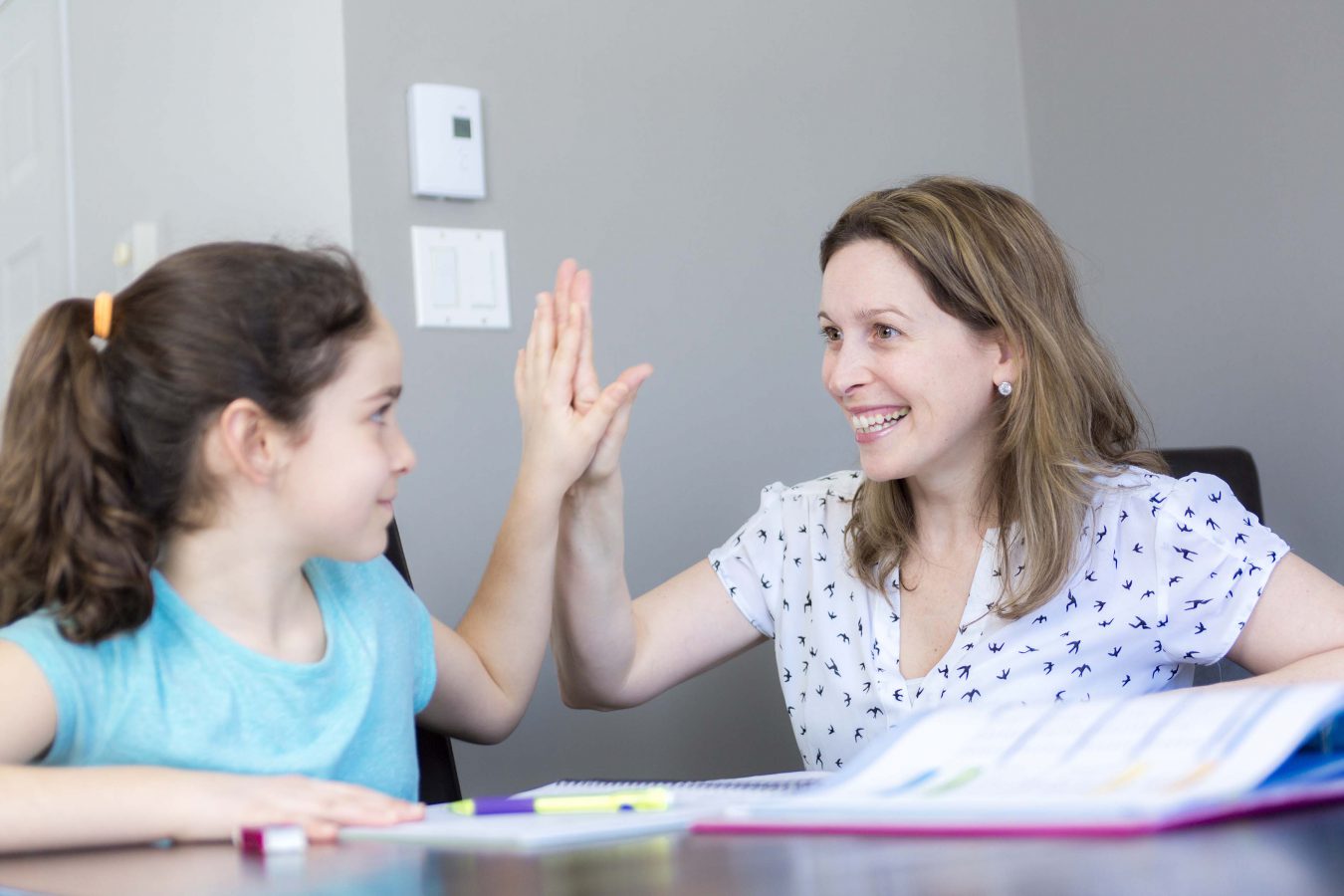
Low self-esteem can be holding your child back, writes Dr Deborah Trengove. She suggests practical ways parents can help build healthy self-esteem.
‘The worst loneliness is to not be comfortable with yourself.’ – Mark Twain
It is a gift to our children to build their self-esteem, giving them a foundation for their future growth, happiness and healthy relationships. But what is self-esteem? More than a global term, self-esteem has three core elements:
Self-acceptance: helping us to accept our flaws and weaknesses.
Self-worth: recognising that everyone has value as a human being.
Self-confidence: strengthening the ability to act in a range of situations.

Young people with low self-esteem are troubled by the views they hold of themselves. Low self–esteem can increase self-doubt, create self-criticism and hold kids back in different ways.
This might mean avoiding healthy risk-taking such as speaking up, trying new things or taking opportunities that come along. A negative view of self is associated with avoidance, anxiety and unhappiness.
Young people build their self-esteem through judging themselves against various benchmarks, depending on what is valued in their family and social context. For young people, this commonly includes physical appearance, sporting prowess, academic achievement and social approval or popularity.
Family dynamics such as sibling comparisons, weak or interrupted attachment to primary caregivers and critical life experiences also influence the development of self-esteem.
Body image starts to have an impact prior to puberty and may undermine self-esteem through comparisons to unrealistic ideals and a focus on appearance.
The move to secondary school can be accompanied by a dip in self-esteem with a greater emphasis on academic scores and a larger pool of peers to ‘compete’ with for success and recognition.
Self-esteem explained
Unstable self-esteem commonly equates ‘success’ in one area with a global rating of self. For example, if a teenager believes they must get an A on every test or else they are no good, their self-esteem will go up with every A and down with every score less than an A. Unstable self-esteem leads to an emotional roller coaster, depending on specific performance or self-judgments.
Low self-esteem dwells on past failures and attributes inadequacy to low ability or unattractiveness.
Successes are put down to luck or other external factors. A young person with low self-esteem can be overwhelmed by perceived failures and avoid situations in which this might occur.
They may procrastinate to avoid more ‘failure’ or give up easily due to their low expectation of success: it is safer to look lazy or that they don’t care, rather than try and fail, confirming to all, especially themselves, that they are stupid or unlikeable.
Healthy self-esteem does not need constant affirmation. Young people with healthy self-esteem can accept weaknesses, set higher personal goals and persist with tasks. They respond positively to failure, own their successes and have a multifaceted perception of self.
Healthy self-esteem is related to resilience: with less vulnerability to a constant internal critic, children and teenagers can deal with an issue because their ego is not under threat.
Self-image should be complex. Each of us is made up of a myriad of strengths, weakness, physical attributes, successes, failures, experiences and so on. Some of these we have control over, some of these we don’t.
Self-esteem in young people should include interests they enjoy, as well as personality characteristics, relationships and aspirations for the future.
7 ways parents can build self-esteem
Number 1: Avoid comparisons
It is very easy for kids to compare themselves to others: to siblings, to parents, to peers. Almost always such comparisons are in the negative and are fodder for ‘I am not good enough’ in terms of achievements, appearances or even importance. Keep an ear out and challenge these assumptions. Reinforce that everyone is unique and cannot be compared to others. Specific achievements or attributes are only one aspect of each person and don’t make anyone better or more loved than another.
Number 2: Competence builds competence
Developing skills and experiencing success is an important part of building self-esteem. To assist, help kids set realistic goals, based on ability and resources such as time and opportunities, usually broken down into smaller steps. Part-time jobs can be a great way of building self-esteem for teenagers through financial independence, growing social skills and increased responsibility.
Other goals might include getting involved in a new activity, setting learning goals or speaking up more often in class. Keep an eye out on the ratio of positive to negative experiences: if there are few areas of success, a conversation with the school and developing a joint strategy might be warranted.
Number 3: Promote a growth mindset
Mistakes are normal and are part of learning and growth. It is hard to always do our best, because we are humans, not machines. So long as we are trying to do the best we can, no more can be asked. Carol Dweck’s work on mindsets gives a framework for recognising effort and ongoing improvement, challenging the assumption that ability is fixed. If a child says ‘I don’t have a maths brain’ they are demonstrating a fixed mindset but the alternative of ‘I find maths confusing but I am learning new strategies’ shows a growth mindset.
Often the term yet can be incorporated to build optimism for future learning such as ‘I understand essays are complicated and you haven’t got the hang of them yet.’ A growth mindset helps to embrace challenges, encourages persistence and promotes learning from mistakes
Number 4: Foster a range of abilities and interests
Encourage individual passions and validate them with your attention and time. Whether it be sporting, intellectual, creative, artistic, helping others, social justice or other possibilities, taking interests seriously enables children and teenagers to take themselves seriously.
Personal qualities such as empathy, kindness and fairness are not always recognised in achievement awards but deserve recognition.
Number 5: Recognising achievements
Over the years, I have often heard the following: ‘I did great on the test, getting 85 per cent my best grade this year. But when I told dad, the first thing he asked was what happened to the other 15 perf cent. There is just no point trying, I will never be good enough for him.’ Instead of giving the message that your child’s best effort is not good enough, focus on what went well first, talk about what they are pleased with and why. This reinforces the strategies used and effort put in. If appropriate, discuss what they might do differently next time.
Number 6: Praise
Recognise effort, improvement and enjoyment of achievements and activities, not just outcome and be specific in these comments. Some examples are:
- You put a lot of effort into your preparation for the talk – well done!
- I admire the way you encouraged your teammates today in the game.
- Your teacher said your spelling is improving, practice is paying off.
Be wary of gratuitous, over-the-top praise, which is not earned: it doesn’t help build personal satisfaction and perseverance. Encourage your children to praise others: supporting peers and siblings has a positive impact on the giver, along with indirectly promoting self-praise.
Number 7: Model positive, realistic self-praise
Hearing your parents recognise their own efforts and achievements is very powerful, as in these examples:
- I am pretty pleased with fixing the mower.
- I gave a presentation – I was nervous beforehand, but it went well, and my preparation paid off.
- Your aunt needed help today and I am happy I could support her.
Each of these demonstrates the breadth of self-esteem and how we can recognise our own qualities and actions.
Like this post? Please share using the buttons on this page.
About Deborah Trengove
Dr Deborah Trengove is a former school psychologist and school wellbeing leader.
Deborah’s previous articles for The Parents Website include 10 tips to help your teen out of the Procrastination Trap, How parents can help kids make good friends and Lessons from lockdown: The good things we’ve discovered.


